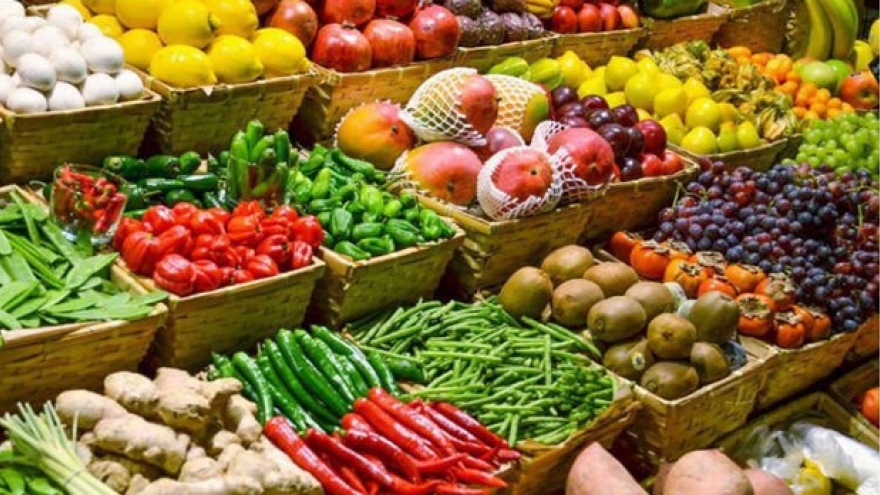Tag: Exports

Vietnamese petroleum export to Laos on the rise
VOV.VN - Vietnamese commodities exported to Laos rose 10.4% last year to hit US$656.4 million, of which petroleum exports brought in US$125.4 million, up 439%, according to the Vietnamese Trade Office in Laos.

State budget collection from export-import drops in January
State budget collection from export-import activities in January topped VND24.8 trillion (US$1.07 billion), or 5.8% of the estimate, down 42.3% annually, reported the General Department of Vietnam Customs (GDVC).

Businesses exporting medicinal herbs to China required to register
Vietnamese businesses which want to export medicinal herbs to China must submit information about growing areas and packaging establishments to the provincial Departments of Agriculture and Rural Development.

Garment, footwear exports to hit US$80 billion by 2025
Vietnam’s textile, garment and footwear makers aim to achieve a combined export value of US$77-US$80 billion in 2025 and US$106-US$108 billion in 2030, according to the strategy for the development of Vietnam’s textile and footwear industries.

Decline in new orders slows as exports return to growth: S&P Global
VOV.VN - The Vietnamese manufacturing sector continued to face challenging business conditions in the opening month of the year amid falling output and a decline in new orders, although there are positive signs ahead, according to a report released on February 1 on the Vietnam Manufacturing Purchasing Managers' Index (PMI) by S&P Global.

Vietnam develops green agriculture to increase exports to EU
Vietnam is paying attention to mobilising resources to invest in developing green agriculture with an aim to raising the market share of its agricultural exports to the European Union.

Vietnam’s trade with India hits record in 2022
Two-way trade between Vietnam and India saw a yearly increase of 13.6% to US$15.05 billion in 2022, statistics from the General Department of Customs showed.

Vietnamese exports face array of challenges ahead in 2023
VOV.VN - Vietnamese exporters are required to swiftly grasp information in order to adjust production activities in line with market conditions amid global high inflation, along with rising domestic exchange rates and interest rates, according to insiders.

UK imports from Vietnam in 2022 put at over US$6 billion
United Kingdom (UK) imports from Vietnam amounted to US$6.06 billion last year, rising by 5.2% over 2021, according to the General Department of Vietnam Customs.

Bright future for wood pellet exports: experts
With the trend of green consumption, the demand for wood pallets will continue to rise in the future, experts said.
